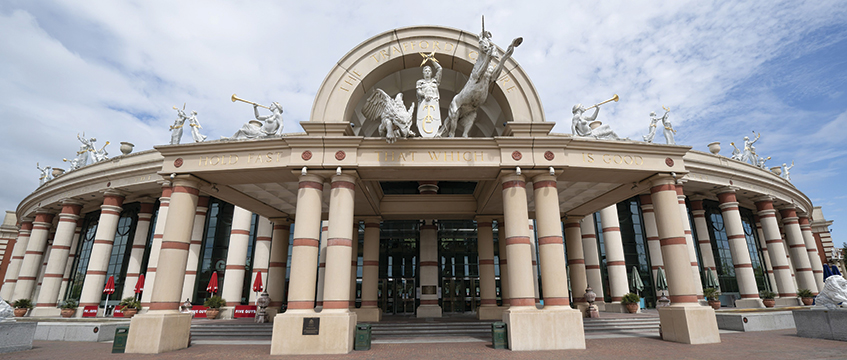Whittaker’s woes: intu collapse destroys billions of value
There is rarely any value left in the shares of a company once it enters administration, which could be bad news for intu deputy chairman John Whittaker.
Whittaker’s decision to sell his Trafford Centre in a £1.6bn shares and debt deal in 2011 is hailed, with hindsight, by senior market figures as one of the most ill-judged real estate decisions of the past decade.
“He has ended up with nothing,” notes one retail analyst. Another senior retail source says the sale “could go down as one of the worst deals of the last 10 years”.
There is rarely any value left in the shares of a company once it enters administration, which could be bad news for intu deputy chairman John Whittaker.
Whittaker’s decision to sell his Trafford Centre in a £1.6bn shares and debt deal in 2011 is hailed, with hindsight, by senior market figures as one of the most ill-judged real estate decisions of the past decade.
“He has ended up with nothing,” notes one retail analyst. Another senior retail source says the sale “could go down as one of the worst deals of the last 10 years”.
The property mogul’s Peel Group took a 23% stake in intu, then known as Capital Shopping Centres Group, as part of the agreement in 2011. CSC funded Peel with £750m in shares and convertible bonds, while assuming around £850m in net debt and other liabilities. Peel also paid some £75m in equity.
Over the years, Whittaker built his stake in the landlord to 26%. The Trafford Centre’s value soared past the £2bn mark in 2015 – but now he possesses valueless equity.
“The worst deal he ever did”
“Whittaker is probably going to think this was the worst deal he ever did, in terms of outcomes,” says a restructuring lawyer, who did not wish to be named. “Even then, everyone still thinks it’s the best asset in the group.”
Peel says that intu’s challenges “do not have any significant impact on the Peel Group’s financial position or future prospects”.
“Intu has been facing difficulties for a number of years now against a backdrop of a fast-changing retail sector,” says a spokesman. “As a result, our investment in intu Properties has been a relatively small part of the group’s investment portfolio since 2017.”
Peel adds that as a long-term investor in intu, the group felt “considerable sadness” at its troubles. It reaffirmed its commitment to its land and property arm’s investments in TraffordCity and City Gateway – its 1,000-acre location that includes the Trafford Centre.
Both the Trafford Centre – broadly seen as intu’s most prized asset – and the landlord’s SGS loan, which is secured against centres including Lakeside and Watford, are widely identified as the biggest draws for potential investors in intu’s portfolio as administrator KPMG seeks to get the best value for creditors.
Trafford, which is tied to a £250m junior loan held by CPPIB and a £690m CMBS, was valued at nearly £1.7bn at the end of last year.
The centres within the £1.3bn SGS debt facility, which is led by banks including HSBC, were collectively valued at about £1.8bn in December. Hedge fund Davidson Kempner is said to be eyeing opportunities to build its ownership in the structure.
At the other end of the scale, its £295m debenture structure – consisting of centres including Braehead, Potteries and Eldon Square – is under considerably more strain.
Asset managers-in-waiting
The administrators will have set the goal of selling all of intu’s centres within its SPVs over time and ultimately migrating these to new ownership and asset managers.
This process is estimated to take around three to six months, although it will likely take longer for intu’s bigger centres and structures.
So far, the roster of asset managers-in-waiting includes Global Mutual, Ellandi, Sovereign Centros and APAM, while British Land is touted as one of the names in the running to manage the Trafford Centre until a new buyer is found.
To send feedback, e-mail pui-guan.man@egi.co.uk or tweet @PuiGuanM or @estatesgazette











